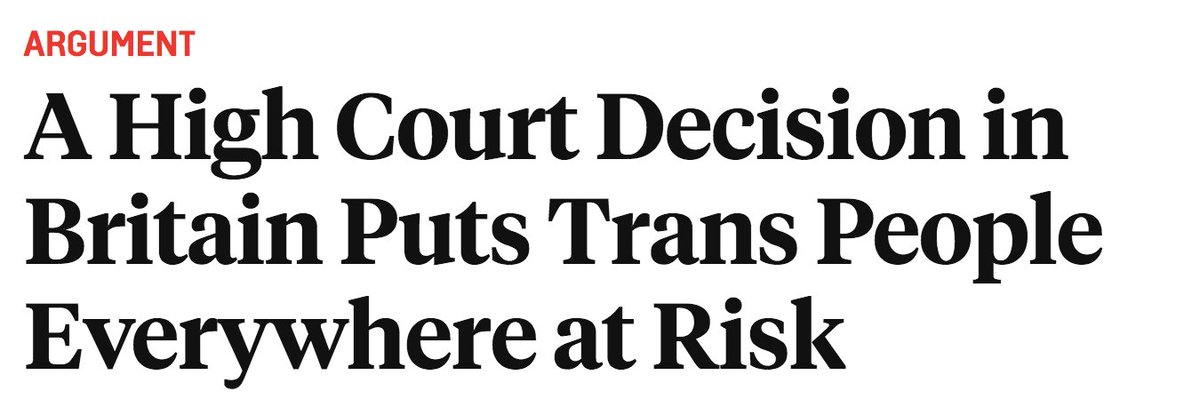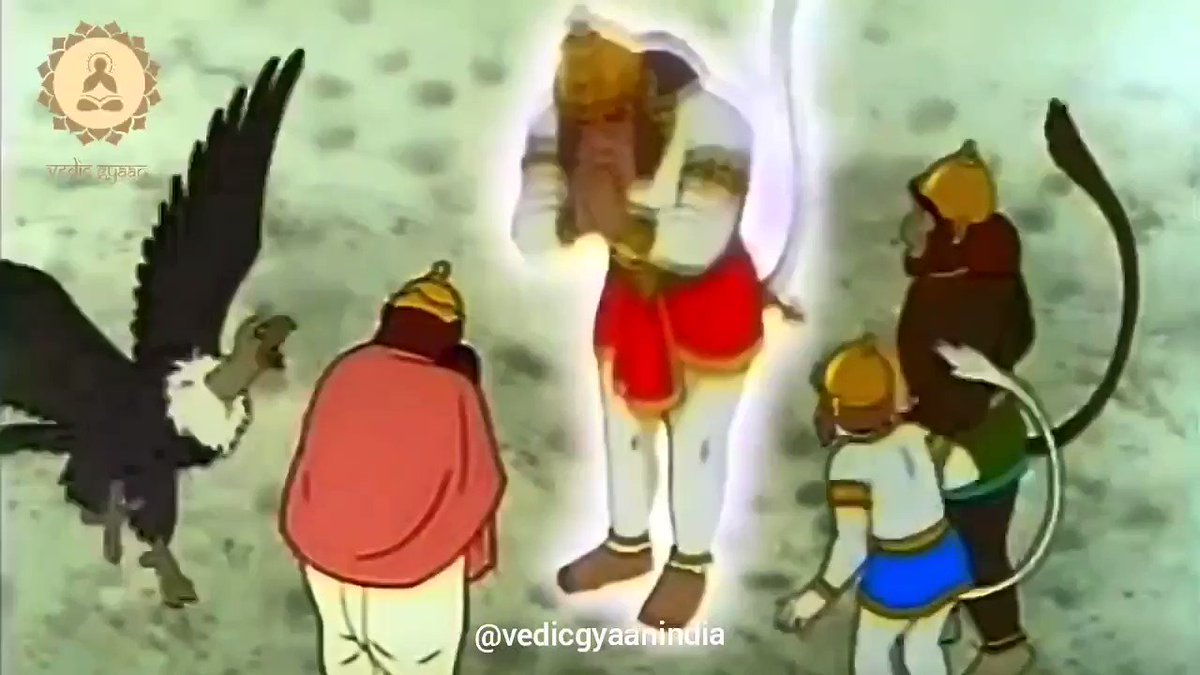The crisis in the NHS is overwhelming this week. It has reminded me of conversations I had with my late father on how to manage within the state sector. I think they're worth sharing.
More from Richard Murphy
More from Government
The Financial Governance Committee (#FGC) has issued a damning advisory note concerning the #FGS Ministry of Petroleum and Mineral Resources' (MPMR's) oil & gas licensing efforts.
Current approach provides "poor value for money...that may last for 40 years or more."
(thread)
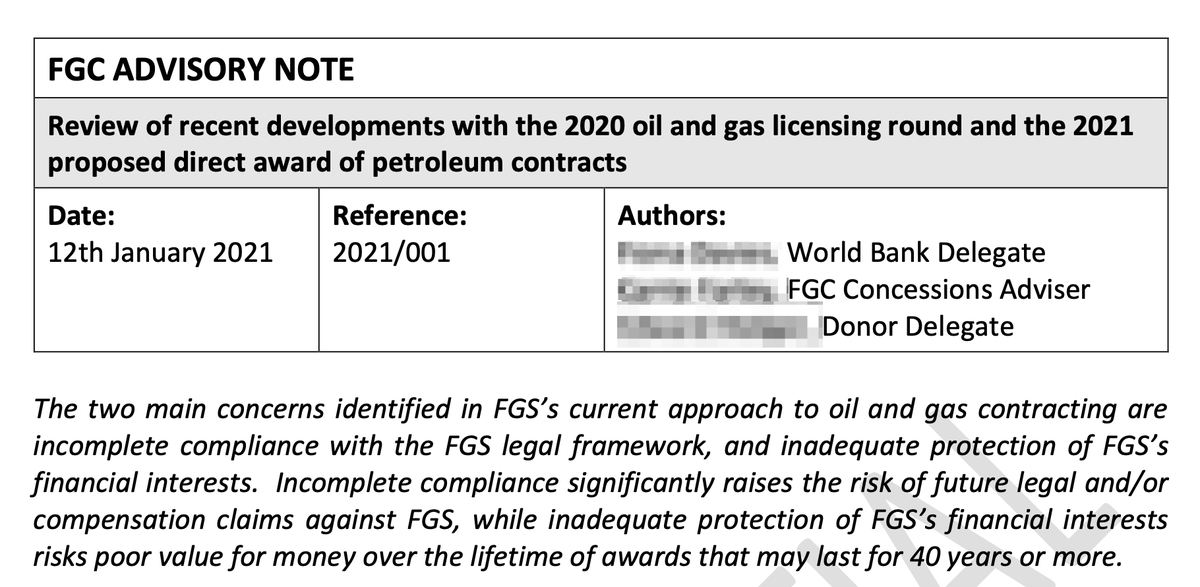
The FGC raises concerns over "incomplete compliance with the FGS legal framework, and inadequate protection of FGS’s financial interests." Current MPMR approach risks "future legal and/or compensation claims against FGS."
The FGS makes seven principal recommendations. #7: "PSA negotiations do not prioritise short-term revenue (i.e. signature bonuses) at the expense of longer-term value."
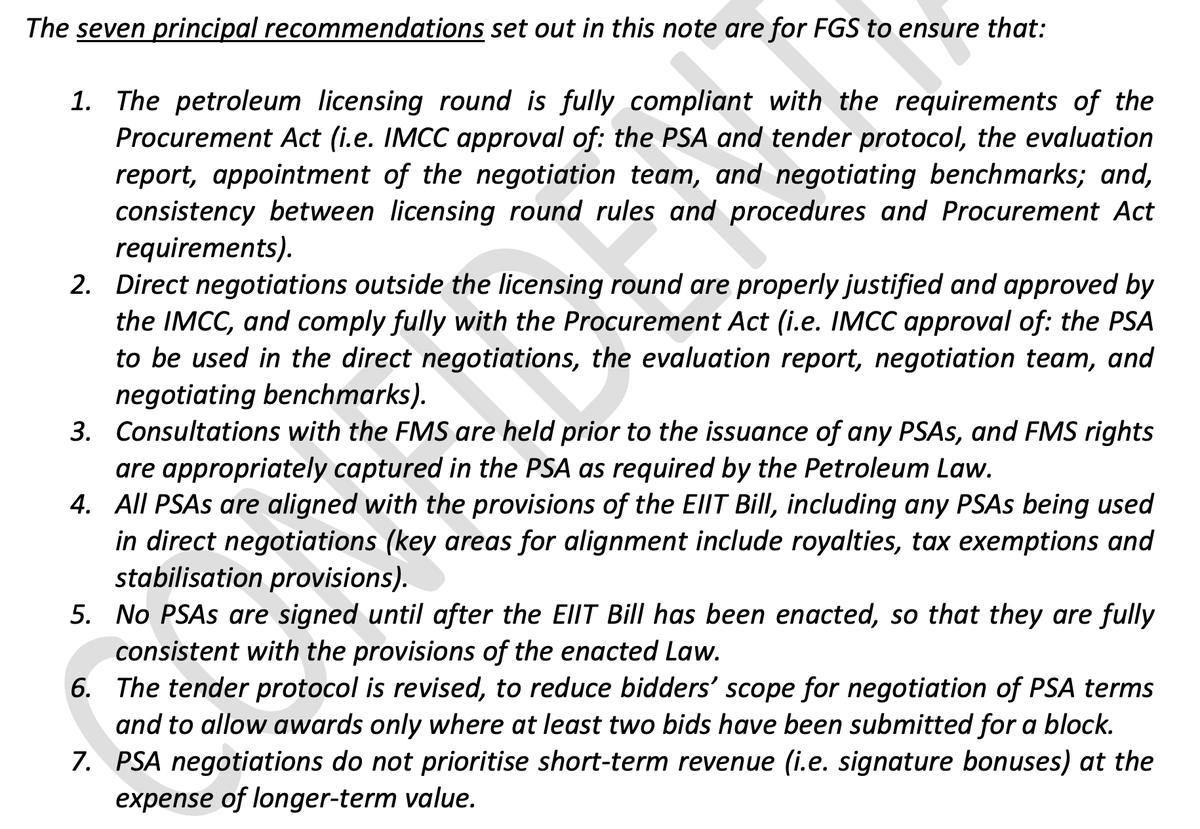
The note confirms that Coastline Exploration (https://t.co/YztVl7wCZi) -- a company formed in 2018 and based in the Cayman Islands -- is in fact a rebranding of the discredited Soma Oil & Gas.
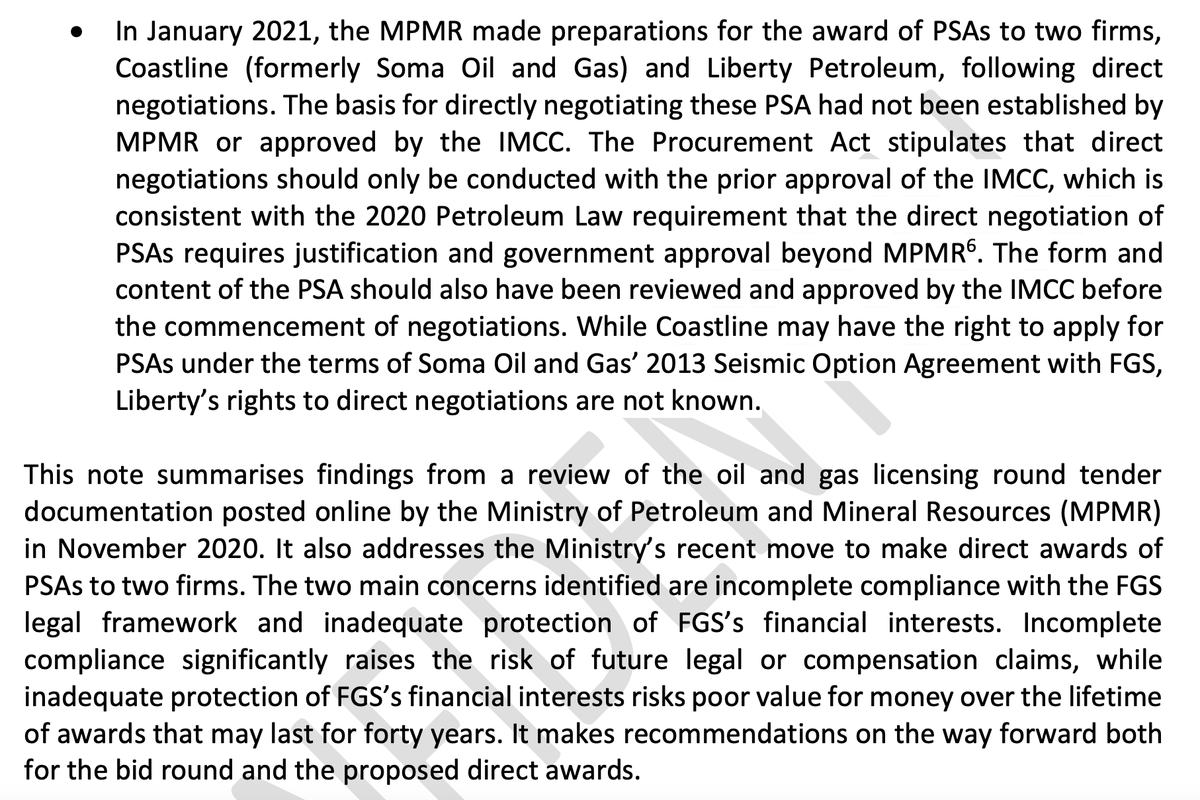
"Minimum bidder qualifications are set at relatively low thresholds... By comparison, the 2019 tender protocol required that a bidder include at least one party who has drilled multiple offshore exploration wells."
Grandfathering in "Coastline"? 🤔

Current approach provides "poor value for money...that may last for 40 years or more."
(thread)

The FGC raises concerns over "incomplete compliance with the FGS legal framework, and inadequate protection of FGS’s financial interests." Current MPMR approach risks "future legal and/or compensation claims against FGS."
The FGS makes seven principal recommendations. #7: "PSA negotiations do not prioritise short-term revenue (i.e. signature bonuses) at the expense of longer-term value."

The note confirms that Coastline Exploration (https://t.co/YztVl7wCZi) -- a company formed in 2018 and based in the Cayman Islands -- is in fact a rebranding of the discredited Soma Oil & Gas.

"Minimum bidder qualifications are set at relatively low thresholds... By comparison, the 2019 tender protocol required that a bidder include at least one party who has drilled multiple offshore exploration wells."
Grandfathering in "Coastline"? 🤔










